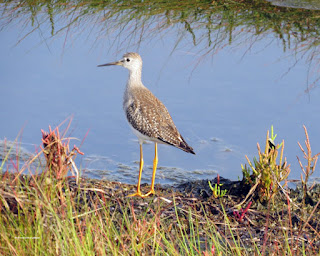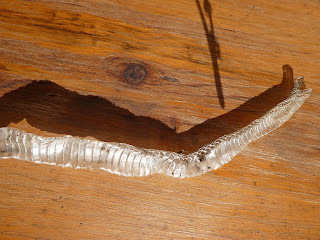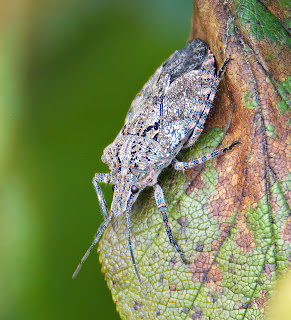NATURE
MONCTON NATURE NEWS
September
5, 2023
To respond
by e-mail, please address your message to the information line editor, nelsonpoirier435@gmail.com .
Please
advise both the editor at nelsonpoirier435@gmail.com and the proofreader nicholsl@eastlink.ca if any
errors are noted in wording or photo labelling.
For more information on Nature Moncton, check the website at www.naturemoncton.com .
Edited by
Nelson Poirier nelsonpoirier435@gmail.com
Proofreading
courtesy of Louise Nichols at nicholsl@eastlink.ca
There were quite a number of beachgoers and dog walkers, but shorebirds
were not too nervous. At the far end, the numbers increased dramatically to several hundred – mostly Semipalmated Sandpipers but many Semipalmated Plovers,
approximately 100 Sanderlings, a few dozen Ruddy Turnstones, and a handful of Least
Sandpipers too busy eating to worry about people. Some offshore birds were Bonaparte’s Gulls, a few Northern Gannets, 8 Black Scoters, other gulls and
Common Eiders, and a few Double-crested Cormorants gathering for migration. An interesting
time!
**Anna
Tucker’s family on the Shediac Rd. near Moncton are avid birdfeeders and
getting a great diversity of patrons at the moment, which include a pair of Northern
Cardinals.
There
is no sign of young-of-the-year birds, but I suspect they can’t be far away if
nesting was successful.
Young-of-the-year
birds should still have a dark bill unless they are possibly from a very early spring
brood. They would normally take on the reddish bills over the next few months.
**Verica LeBlanc visited Hay Island on September 2.
She got a photograph of some Lesser
Yellowlegs foraging and a majestic Great
Blue Heron surveying its terrain for possible snacks.
Verica
noted on a distant island that there were a lot of cormorants and gulls out of
her photo range.
**Barbara
Smith recently photographed a mushroom that really ‘caught her eye’. It has
assumedly been sampled by some slugs, but not seeing the underside of the
mushroom makes it difficult to suggest a species.
Barbara
comments she has no idea what kind of fungi this is but is going to go out on a
limb and call it the rare Pig Snout variety!!!!!. The symmetrical holes
made her wonder whether the ‘nostrils’ developed naturally or were formed when
an insect or other creature had a snack.
**Yolande
LeBlanc found a shed snakeskin intertwined between her garden carrot
leaves on Sunday. She measured it over 26 inches long. It's quite amazing to see the mouth and eyeballs on the skin that are
arrowed.
We know that a snake is about to shed its skin when we see a blue-coloured
eye, which is the third eyelid or nictitating membrane which will shed.
** Christine Lever
has noted a Red Fox has been in their Riverview neighbourhood for most
of the summer. Initially, it looked plump and healthy, but now it looks thin as
we head into the fall (not what would be expected.)
**
Brian Stone walked around behind Crandall University on Monday afternoon
in wonderfully warm, humid weather. He noticed dozens of grey Rough Stink
Bugs on Alder bush leaves, some adults and some as instars (immature
versions). Many crackling and non-crackling Band-winged Grasshoppers
were mimicking butterflies as they flew away from Brian as he walked. A Shadow Darner Dragonfly hovered nearby long enough for its photo to be taken in
flight, and one tiny American Toad hopped energetically across the trail, desperately trying to reach safety in the grass beyond the trail.
A
pair of craneflies and a pair of Meadowhawk Dragonflies were both
caught mating. A Moth, a Caterpillar, a Flower Fly, a Least
Skipper Butterfly, and a Viceroy Butterfly were seen and
photographed. On the small ponds in tire ruts along the roadways, dozens of
tiny dark Flies were skating along the surface of the water. In a grassy
partition between two off-ramps at the highway overpass, Brian startled many
grasshoppers into jumping wildly, resulting in some of them landing in Banded
Garden Spider (Argiope trifasciata) webs and becoming lunch for the large
spiders.
However,
it was interesting to note a number of very small individuals present
lately that must be young-of-the-year due to their very small
size. A few photographs of them in Nelson’s daughter’s hand show how small they
are.
Nelson Poirier
Nature Moncton





.%20SEPT%203,%202023.%20ANNA%20TUCKER.JPG)
.%20SEPT%203,%202023.%20ANNA%20TUCKER.JPG)
.%20SEPT%203,%202023.%20ANNA%20TUCKER.JPG)



.%20SEPT%203,%202023.%20NELSON%20POIRIER.jpg)
.%20SEPT%203,%202023.%20NELSON%20POIRIER%20(4).jpg)
.%20SEPT%203,%202023.%20NELSON%20POIRIER.jpg)
.%20SEPT.%2005,%202023.%20BRIAN%20STONE%20(4).JPG)
%20AND%20GRASSHOPPER%20PREY.%20SEPT.%2005,%202023.%20.BRIAN%20STONE%20(1).JPG)
%20AND%20GRASSHOPPER%20PREY.%20SEPT.%2005,%202023.%20BRIAN%20STONE%20(1).JPG)
%20GRASSHOPPERS.%20SEPT.%2005,%202023..%20BRIAN%20STONE.JPG)
.%20SEPT.%2005,%202023.%20BRIAN%20STONE.JPG)




.SEPT%202.%202023.%20BARBARA%20SMITH.jpg)
No comments:
Post a Comment